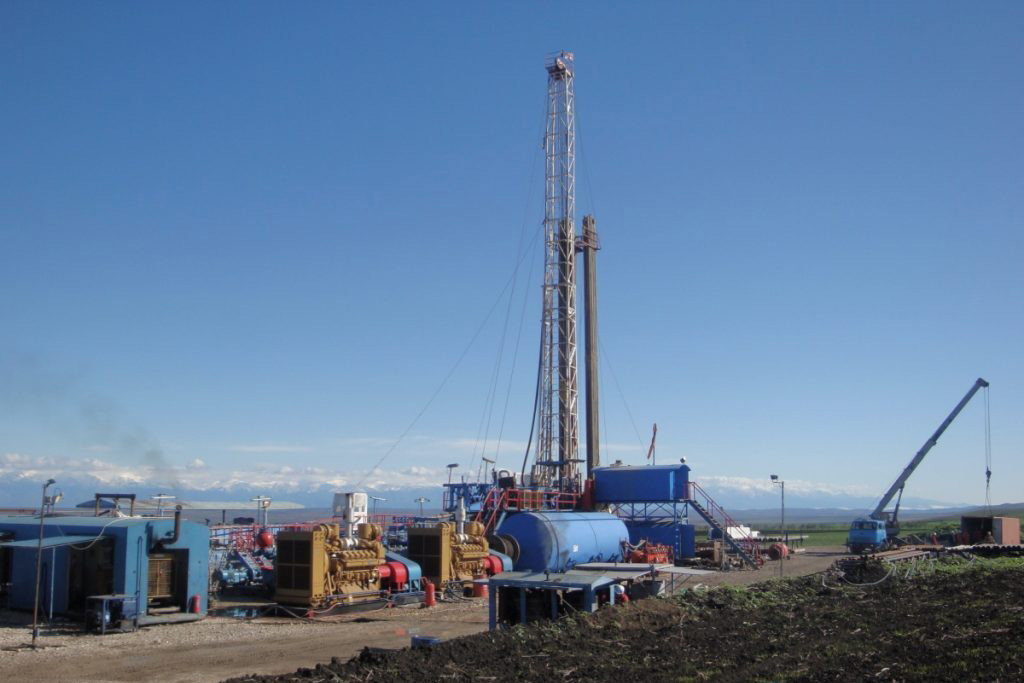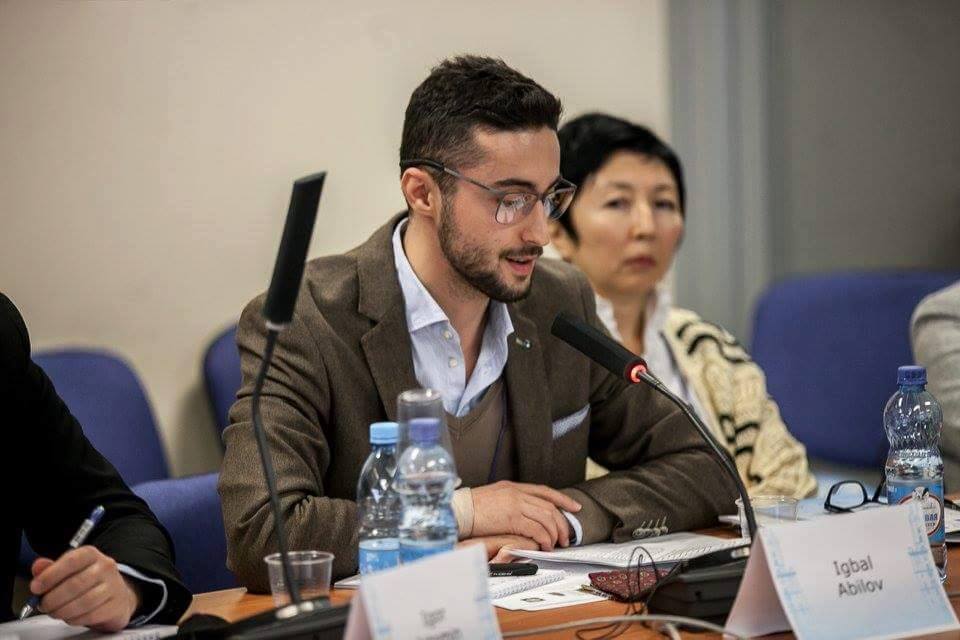An employee of American oil and gas firm Frontera Resources has taken his own life in Georgia after not being paid for 14 months, the head of the Georgian Trade Union Federation has said.
In a Facebook post on Friday, Irakli Petriashvili wrote that 53-year-old Avto Onanashvili’s family had ‘collapsed’ after the Frontera worker was left without an income.
Petriashvili also pointed the finger at US congressional lobbyists.
Since January, several high-profile US congresspeople have made statements criticising the state of democracy in Georgia and tying their criticism to the ongoing dispute between the Georgian government and Frontera,
Another employee of Frontera, Vazhura Tsiklauri, told OC Media that he and Onanashvili had worked side-by-side as firefighters for the company for the past 22 years.

He said they had both signed 25-year contracts with Frontera when it first started operating in Georgia in 1997.
Tsiklauri said that both he and Onanashvili had not been paid for 14 months.
Petriashvili told OC Media that Onanashvili was ‘pushed to suicide’
‘We continue living in a system of wild capitalism, in which a company can avoid taxes and even withhold workers’ salaries earned through hard labour’, he said.
Petriashvili said that for the case to affect the ongoing debates around labour rights in Georgia, everything depended on public involvement.
‘The rights that exist in developed Western societies today have been achieved through years of struggle. Everything depends on the public, the media so that the state steps up and ensures that businesses take on their responsibilities.’
Frontera was not immediately available for comment.
A long-standing labour dispute
Local trade unions have long accused Frontera of not paying its employees.
In December 2019, several dozen employees went on strike claiming the company owed them 11 months of pay.
One of the striking employees, Shota Moseshvili, told Netgazeti in December that management had repeatedly promised that they would receive their salaries but that they never did.
‘We stopped working several times, but they were always promising that they’d pay us. They were asking us to be understanding, and that an investor would come in with a 70 million investment. They said everything would be alright and that’s why the process was taking so long’, said Moseshvili.
‘Eventually, we decided to stop because the company had oil and they weren’t giving us salaries.’

Despite owning 50% of Frontera’s local operations, Frontera Eastern Georgia, the state-run Georgian Oil and Gas Corporation said they were unable to intervene.
In February 2020, the director of the corporation, Goga Tatishvilii, told Radio Tavisupleba that the company fired up to 90 employees following the strike.
The president of Frontera Resources, Zaza Mamulashvili, told Radio Tavisupleba this was not true that the company owed only several months’ salary to its employees.
‘Their people were encouraged by the Ministry of Economy and by Mr Tatishvili. We don’t even know most of these people who appear on TV and pose some demands. Several of them are our employees’, said Mamulashvili.
‘A while ago, some of them on their own, others by our demand, left our company. They don’t work for us. How can they be on strike?’
Frontera’s lobbyists in US Congress
Georgia has accused Frontera of violating the terms of their contract by refusing to return to the state land they were no longer using for extraction.
In January 2018, Georgia filed an appeal against Frontera at the International Arbitration Tribunal. Frontera responded with a counterclaim, claiming $3.5 billion in damages.
In April 2020, the government claimed that the tribunal had upheld ‘the vast majority’ of their claims.
Frontera has disputed this and insisted they are pleased with the tribunal results, which are not public.
Since then, the government has threatened to terminate their contract with Frontera, although they later took a more conciliatory approach.
The dispute has led to a number of highly critical comments from US legislators aimed at the government and the ruling Georgian Dream party.
In January 2020, several US legislators sent letters to Prime Minister Giorgi Gakharia accusing the Georgian Government of ‘aggressive actions against US companies’.
‘For the first time in Georgia’s modern history, your country has been cast in a negative and cautionary light with respect to appropriation from the US Government’, Republican representative Markwayne Mullin wrote on 17 January.
‘The result is that foreign direct investment in Georgia is on the decline because US and European business interests have been subjected to harassment and expropriation attacks. The oil and gas company from Houston, Texas, Frontera Resources, is a notable example of this’, the letter said.
In another letter, republican representative Brian Babin wrote that members of the congress were concerned about ‘notable increasing negative trend in Georgia’s democratic and free-market economic indicators’.
He reiterated Mullin’s concerns over Frontera Resources.
Speaking in the house of representatives in January, Pete Olson criticised the Georgian government and defended Frontera.
What do @OscarTheGrouch and oligarch Bidzina #Ivanishvili have in common? They’re both puppets who’ve trashed their homes. Today I spoke on the House floor in support of the Georgian people demanding an end to @GovernmentGeo corruption and Russian influence in their country. 🇬🇪🇺🇸 pic.twitter.com/OXhsXvFPei
— Rep. Pete Olson (@RepPeteOlson) January 28, 2020
‘Coming from Texas, Frontera Resources has been drilling in Georgia for years and years and years. They’ve created great jobs in America, great jobs in Georgia. They’ve created freedom. That was, until the government took over all their operations, all the equipment. Now they are drilling zero wells in Georgia’, said Olson.
According to Opensecrets.org, a nonprofit research group tracking money in US politics, since 1998, Frontera affiliates have spent more than half a million dollars on lobbying.
All three republican representatives who spoke in Frontera’s defence have received donations from the company, as accounted by opensecrets.org.
In 2017, US representative Steve Russell introduced a bill that would require the US to determine whether the Georgian Government was undermining any commitments or contracts with US citizens doing business in Georgia,
The bill ‘calls for sanctions including visa refusals for current or former Georgian government officials engaged in such activities. The bill is mostly a warning and will probably never be voted upon by the US House of Representatives’, Ifact.ge, a Georgian investigative outlet reported in 2018.
Russell has also received a donation from Frontera Resources, according to opensecrets.org.




 10 July 2020
10 July 2020



